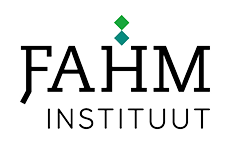
Be Martyrs for Human Rights: The religious humanistic concept of rights (Huquq) in classical Islam as seen in the tafsir of Raghib al-Isfahani (d. 502 AH)
In my academic research on human rights concepts in classical and modern Islamic thought, the Qur’an exegesis of the medieval lexicographer and ethicist Rāghib al-Isfahānī (d. 502 AH/1108 CE) is one of the most fascinating works I have come across. There is little known on Rāghib‘s life, but most of his works have survived.1 He wrote works on Arabic literature and grammar, but he is known especially for two works; his theological-philosophical work on society, Shari’a and human welfare, which has influenced Islamic scholars as al-Ghazālī (d. 1111 CE)2, and his Qur’anic lexicon (Mufradāt fī gharīb al-Qur’ān) which for centuries has been a general reference for Qur’an scholars and commentators.3 Lesser known is his Qur’an exegesis (tafsīr) which has partially survived (it discusses only the first five chapters of the Qur’an) where his theological-philosophical and Qur’anic sciences are brought together.
Rāghib lived in a time which is known as the golden age(s) of Islam wherein religious, humanistic and scientific knowledge and expression were developed to great heights. The Persian city of Isfahan, from which Rāghib got his name, was a clear reflection of that golden age rivalling Baghdad in scholarship and tolerance towards knew knowledge and pluralism. This was the age of the Caliphate whereby Muslim lands were controlled by local rulers (at that time Isfahan and its region were ruled by the Seljuk ruler Malik Shah) who mostly accepted the Caliph’s politico-religious status, and the Fiqh-constructed Shari’a being applied through appointed judges. The golden age thus flourished under the Caliphate and the Shari’a, not despite of it.4 In Rāghib all these elements come together.
Humanistic Tafsir
Rāghib’s humanistic tafsīr is a good example of this can be seen in his commentary on Qur’an 5:8 “O you who believe, stand for God (qawwamin li-lahi) and be witnesses/martyrs for justice (shuhadā’ bi-lQist), and let not the hatred (shanān) towards a people make you avoid being equitable in justice (allā ta’dilūā). Be just, for it is closer to Godconciousness (‘adilūā, huwa aqrab li-lTaqwā), and be aware of God (attaqūā Allah). God is expert over what you do.“
- To stand up for God means being God’s deputies (khulafa‘) by being martyrs/witnesses (shuhada’) in equitable Justice (al-‘Adāla). He compares this with verse 4:135.5 To be martyrs/witnesses for human rights for all of mankind (al-Shuhāda li-Huqūq al-Nāss), and to stand up for human rights when people differ and have conflicts (yukhālifūna) over God’s commands (Amr Allah).
- No hatred for committed injustice against you by a people is an excuse for aggressive transgression (al-i’tida) against them as this is an injustice by itself and thus the opposite of equitable Justice. He compares this with verse 5:2.6 Thus no injustice/oppression (al-Thzulm) gives Muslims permission to just kill or curse their enemies as this by itself is injustice. Any injustice/oppression committed against you, doesn’t matter if it was done by an unbeliever (al-Kāfir), they only make themselves worthy for God’s command by applying equitable Justice with all that is right and wrong and that you stand up for the martyrdom/witness (al-Shahāda) through Right (bi-lHaqq) in all that He commands.
- Godconciousness or guarding awareness (al-Taqwā)7 and the acts of Goodness (al-Khīr) are only real when they are with complete equitable Justice.8
Classical Shari’a Rights
The humanistic concepts of tolerance, anti-aggression, and equitable justice are clearly present in this tafsir. There is no blind application of the Shari’a, but an emphasis on a humanistic methodology and vision which has been ordained by God Himself. Even though many elements of the classical Islamic worldview were divided between belief and unbelief, which caused social and judicial discrimination of the other, there is clearly a belief present that all humans have rights. Classical jurists (al-Fuquhā’) divided the Shari’a into subject fields: the field of creeds and rituals between God and Man (al-‘ibadāt), and the field of social interactions between humans (al-Mu‘amalāt). The different subjects in these fields were further divided between falling under Huqūq Allah (rights of God) or Huqūq al-Nāss (rights of mankind).9 The belief in God as the sole Creator and the resulting worship of and obedience to Him for being the Creator was seen as a Divine right. The idea that humans are naturally free, can have possessions and deserve safety were seen as human rights. One of the most interesting historical developments was that the penal punishments (Hudūd) were not placed under human rights, but under the rights of God, whereby God represented and stood as a guarantee for the sustainment of human welfare above any worldly power. As Anver Emon explains:
“Theologically, God does not litigate and is free from any need. Muslim jurists used “Huquq Allah” to refer to the wellbeing of society that the imam or ruler must uphold in light of his imperium over society. In light of this juristic usage, the phrase “rights of God” is used here as a term of art to represent the social good that must be effectuated by the imam.”10
Where public welfare ends and human rights begin isn’t always clear, and it can be better understood as two partially overlapping fields where some “rights of God” guarantee the protection and fulfilment of “human rights”. This classical framework isn’t completely the same as the modern framework on human rights, but it is an important predecessor of the Lockian idea of natural rights of citizens overruling the Divine rights of kings as developed centuries later during the Enlightenment. The classical scholars also clearly constructed these rights in a humanistic hierarchy whereby the rights of man dominated the rights of God. Rāghib explains this hierarchy in his exposition of verse 5:33-34 on the capital punishment (Hadd) for war and humanitarian corruption:
“The only recompense of those who make war against Allah and His Messenger and who strive hard to create disorder in the land, is that they be executed […] This would mean ignominy for them in this world and there awaits them in the Hereafter a severe punishment. Except those who revert [their ways] from those before that you have overpowered them, so you may know that God is forgivingly-protective against harm and continuously merciful.” [5:33-34]
Rāghib says on this: “The exception [of forgiveness] refers to everyone who undertakes the mentioned [reverting], [and this exception] is in punishment [of the hereafter] (al-‘adhāb) and in the upholding of the capital punishment (al-Hudūd), and this is said by some of the jurists (al-Fuquhā’). All the rights of God (Haqq Allah) [in fulfilling the Hudūd] are specifically stipulated (mukhtass) in a decisive way (bi-qāta‘ al-Tarīq), thus the reverting before capture remove (yuzīl) what was on him from the rights of God, and that is from the rights of mankind (Huqūq al-Ādamiyya) which are not removed when searched by those who own these rights [i.e. everyone has always inalienable rights and can claim them].“11
Rights can’t be Removed
In this classical Shari’a construction, human rights can never be removed from a person, while the application of penal punishments as a “right of God” can be removed as He is needless and always forgiving and merciful. This humanistic hierarchy is based on theological assertions that God can never be harmed or in need of rights, while human existence depends on the protection against harm and the presence of certain natural rights.12 This theological assertion has political (human welfare trump the will of the ruler) and judicial (leniency, forgiveness and reform trump the application of the divine law) consequences, but also consequences for the tolerance of differences in religion. As God is needless, He is in no need for people having the correct conceptionalization of the Divine, and thus different forms of monotheisms, polytheisms and naturalisms are allowed on earth as long as these people do not harm or oppress others. This is expressed beautifully by the famous Āsh‘arite theologian, Shafi‘ite jurist and Qur’an commentator Fakhr al-Dīn al-Rāzī (d. 604 ah) in his commentary on verses 11:117-119:
“And the meaning is that the Exalted does not destroy the people of the villages based purely (bi-mujarrad) on them being polytheists (Mushrikīn) if they are doers of good/righteousness (muslihīn) in public and social affairs (al-Mu‘āmalāt) in what is between them and the occurrence that the punishment of extermination (’adhāb al-istisāl) is not send down for the sake of being a people holding creeds of polytheism (Shirk) or unbelief (Kufr). But on the contrary He sends down the punishment (al-’adhāb) when [they are] evil (āsāwā) in social affairs (al-Mu‘āmalāt) and they expand injury/harm (al-iydhāi) and injustice/oppression/misplacing rights (al-Thzulm). And for this the Jurists (al-Fuqahā’) say that the Rights of the exalted God (Huqūq Allah ta’ālā) [concerning false beliefs] is built upon liberal forgiveness (al-Musāmahah) and free generosity (al-Musāhalah). And the Rights of Mankind (Huqūq al-i‘bād) are built upon the strict upholding (al-Dfīq) and the fierce protection (al-Shuhh) [of these Rights]. […] He does not destroy them based purely on their Shirk if they are doers of righteousness in their dealings with others in goodness (al-Salāh) and appropriateness (al-Sadād).”13
Worldview and Punishments?
This humanistic worldview wasn’t just based on the verses on penal or Divine punishments (Hudūd and ’adhāb), but also on the verses that discuss rituals. When someone is ill or travelling, he can postpone or minimise the rituals. It is God Himself who places mankind above creed, ritual or punishment. When we look back at Rāghib’s exposition of verse 5:8, it becomes clear that he understands it not as a call to be martyrs for the rights of God (Huqūq Allah), which entail the monotheistic creed of Islam (tawhīd), the belief in the Prophethood of Muhammad (al-Nabawiyya), the acts of worship (al-‘ibadāt), or the establishment of the penal punishments (Hudūd) as the chopping of the hands or the whipping of fornicators. Which is everything that many extremists strive for and even want to gain martyrdom for. No, to classical medieval scholars as Rāghib one can only be a martyr for human rights (Huqūq al-Nāss), as it is this which gains the satisfaction of God and makes one worthy to for martyrdom.
The contrast between different classical and modern concepts of the Shari’a and the Caliphate could not have been shown in a clearer fashion. These Islamo-humanistic predecessors of the Enlightenment are important grounds for the engagement and reconciliation of modern human rights concepts with Islam. The idea that all humans have natural rights that are dominant over political power and religious truth isn’t just a Western invention, it is also truly Islamic.
Arnold Yasin Mol (1982), BA Islamic Theology/Islamic Studies at Leiden University, thesis on ‘The Grounds and Obstacles for Human Rights Discourse in Classical and Modern Islamic Thought: The theoretical constructions of God, nature and man and their practical consequences and possibilities’. Previous Biochemistry (Leiden College) and Christian Theology (Faculty of Catholic Theology, Utrecht University). See more at: Academia leidenuniv.academia.edu/ArnoldMol
Rough translation of Rāghib’s commentary on verse 5:8
)قوامين لله) أي خلفاءه شهداء بالعدالة، كما قال تعالى: (يا أيها الذين آمنوا كونوا قوامين بالقسط شهداء لله ولو على أنفسكم أو الوالدين
“(Be an establisher for God) meaning be His deputies (khulafā‘) by being martyrs/witnesses (shuhadā‘) in equitable Justice (al-‘Adāla), such as the saying of the Most High: (O you who believe/are peaceful be establishers in Justice (bi-lQist) martyrs for God even against yourselves or your parents) [verse 4:135]”
وذلك يقتضي الشهادة لحقوق الناس كما قال الحسن: وعلى قومهم فبما يخالفون أمر الله فيه، كما قال غيره: ولأمر الله أنه حق. كما قال الزجاج. وقيل: معنى الشهادة الحضور أي كونوا في جميع ما يتحرونه مشاهدين لله.
“And that He decrees to be martyrs for Human Rights (al-Shuhāda li-Huqūq al-Nāss) such as al-Hassan [al-Basri] said: and on them standing up [for justice and rights] in what people differ/are conflicting (yukhālifūna) in the Command of God (‘Āmr Allah), such as another saying: and the Command of God that is Just/Right/giving right (haqq). Such as is said by al-Zujāj. And it is said: the meaning is the present witnesses meaning being in the gathered group (jamī‘a) what pursues to be witnesses for God.”
وقوله: (على ألا تعدلوا) أي على ترك العدالة وذلك قريب من قوله: (ولا يجرمنكم شنآن قوم أن صدوكم عن المسجد الحرام أن تعتدوا)
“And His saying: (except with acting with equitable Justice) meaning above leaving equitable Justice and that is connected close to His saying: (and let not the hatred of some people in (once) shutting you out of the Sacred Mosque lead you to transgression) [verse 5:2]”
فالاعتداء قريب من قوله: (ألا تعدلوا) لكن قوله: (ألا تعدلوا) أبلغ. وقوله: (هو) أي العدل فأضمر المصدر لدلالة الفعل عليه كقولهم: – من كذب كان شرا له أي الكذب شرا له، إن قيل كيف قال: (أقرب للتقوى)، [..] وقد علمنا أن لا شيء من التقوى ومن فعل الخير إلا هو من جملة العدالة.
“Thus the transgression (al-Ā‘tadā‘) is connected close to His saying (except with acting with equitable Justice) because His saying: (except with acting with equitable Justice) informs it [i.e. transgression is made the opposite of justice]. And His saying: (it is/huwa) meaning equitable Justice (al-‘Adl) thus weakening the source (al-Masdar) for the proofs of the act on it such as their saying:-whoever lies is evil for him, meaning, the lie is evil for himself, in that manner it is said how He says: (is close to guarding awareness/al-Taqwā), [..] And it teaches us that no thing is from al-Taqwā and from the acts of Goodness (al-Khīr) except when it is from complete equitable Justice.”
[…] وعلى ذلك قوله تعالى: (آلله خير أما يشركون) وقد علم أن لا خير فيما يشركون بوجه والآية نزلت في يهود احتالوا النبي – صلى الله عليه وسلم -.
“And on that the saying of the Most High: (God is better than what they associate [with the Divine]) and He teaches that it is not better in what they associate with its aspect and the verse was sent down when some jews swindled the Prophet (saaws).”
وقيل: في قريش لما صدوا المسلمين. فأمر الله تعالى المسلمين ألا يتركوا معهم مع ذلك استعمال العدالة.
“And it said: When the Quraīsh repelled the Muslims. Thus God the Most High commanded the Muslims to leave them except with establishing works of equitable Justice.”
إن قيل: كيف تصور الظلم وقد أبيح للمسلمين أن
يقتلوهم ويسبوهم ويسلبوهم وقيل: كل ذلك أبيح لهم على وجه دون وجه، متى أخل لمراعاة الحكم المسنون في شيء من ذلك، فهو ظلم بل من فعل الإنسان بالكافر مع ما أمر أن يفعل به قصدا إلى التشفي منه تحريا لأمر الله، ففى ذلك تعديا فأوجب الله تعالى تحري العدالة مع كل محق، ومبطل وإقامة الشهادة بالحق في كل أمر، وبين الله أنه تعالى عالم بما يتحرونه، ولا يخفى عليه خافية.
“That it is said: How can they imagine injustice/oppression (al-Thzulm) and give permission to the Muslims that they can slay them and curse them and deny them, and it is said: All that is permitted (‘ubīh) for them on this aspect except by this aspect [i.e. only act with equitable Justice], when it offends the observance of the sanctioned Ruling (al-Hukm al-Masnūn) in something from that, and that is injustice/oppression (al-Thzulm). But in fact from the acts of Mankind with the unbeliever/rejecter (bi-lKāfir) with what He commands, that it acts with the objective (qasdā) towards the satisfaction from Him they make themselves worthy with the command of God, thus in that they [do not] transgress in what God the Most High obligated, that they only make themselves worthy by applying equitable Justice with all that is right and wrong and that you stand up for the martyrdom/witness (al-Shahāda) through Right (bi-lHaqq) in all that He commands, and the declaration of God is that He the Most High knows with what they pursue, and there is nothing concealed for Him.”
[al-Rāghib al-Āsfhānī, “Tafsīr al-Rāghib al-Āsfahānī” (Kulliyya al-Da‘wa wa Usūl al-Dīn, 2001), pp. 4:337-338]
Copyright ©2014 Arnold Yasin Mol, see also: www.deenresearchcenter.com
Notes
- His complete name is Abū ‘l-Qāsim al-Ḥusayn ibn Muḥammad b. al-Mufadhdhal al-Rāghib al-Āsfahānī. For a short biography, see: “Al-Muqaddasi and Human Geography: An Early Contribution to Social Sciences”, http://www.muslimheritage.com/article/al-muqaddasi-and-human-geography-early-contribution-social-sciences, accessed on 05-07-2014
- His “al-Dharī‘a ilā makārim al-Sharī‘ah (The ways to come to the excellence of the Shari’a)” (Cairo: Dār al-Salām, 2007). On the influence of this work on al-Ghazālī, see: Jules Janssens, “Al-Ghazali’s Mizan al-‘amal: an Ethical Summa Based on Ibn Sina and al-Rāghib al-Isfahani”, in “Islamic Thought in the Middle Ages: Studies in Text, Transmission and Translation, in Honour of Hans Daiber (Ed. Anna Aksoy and Wim Raven, Leiden: Brill, 2008), pp. 123-138
- The work has survived under two titles: “Mufradāt fī gharīb al-Qur’ān (The vocabulary in the unfamiliar in the Qur’an)” and “Mufradāt al-Fātz al-Qur’ān (The vocabulary of the expression of the Qur’an)”. In the introduction to mine edition it says: “There is no child or scholar of knowledge who doesn’t know this work.” Al-Rāghib al-Isfahānī, “Mufradāt fī gharīb al-Qur’ān” (Beirut: Dār al-Marifah, 2005)
- See www.muslimheritage.com for countless examples.
- 4:135 “O you who believe, stand with justice as witnesses to God, even if against yourselves, or the parents or the relatives. Even if he be rich or poor, God is more worthy of them, so do not follow desire into being unjust. And if you twist or turn away, then God is Expert over what you do.”
- 5:2 “O you who believe, do not violate the symbols of God, nor the restricted month, nor the donations, nor what is regulated, nor the safety made by the Restricted Sanctuary; for they are seeking a bounty from their Lord and a blessing. And when it is permitted for you, then you may hunt. And let not the hatred of another people; because they had barred you from the Restricted Temple; make you aggress. And help each other in piety and righteousness, and do not help each other in sin and aggression. And be aware of God, for the retribution of God is severe.”
- Rāghib explains taqwā in his lexicon as: “To be aware/knowledgeable (ta‘rifu), and the preservation (hafiza) of something against hurt (yūdhī) and harm (yudharru)”. al-Rāghib, “al-Mufradāt fī Gharīb al-Qurān”, p. 545. From this lingual meaning is the intended meaning derived that taqwā represent a state of awareness wherein you preserve yourself and others against any harm.
- Summarization of his commentary, see the bottom of the article for a complete translation of Rāghib’s commentary on verse 5:8. al-Rāghib al-Āsfhānī, “Tafsīr al-Rāghib al-Āsfahānī” (Kulliyya al-Da‘wa wa Usūl al-Dīn, 2001), pp. 4:337-338
- Different terms were used to define the rights of Man: Huqūq al-Nāss, Huqūq al-insān, Huqūq al-‘ibād, and Huqūq al-Adamiyīn.The terms al-Nāss and al-insān refer to mankind in general, al-‘ibād means “the worshipper/servant” and is used for the whole of creation or for mankind as a religious species, and al-Adamiyyin refers to the common heritage of mankind from Adam. As far as I have seen, these were all used interchangeably on an equal level as all were used as the opposite to Huqūq Allah. Further research needs to be done to see why these different terms developed.
- Anver Emon, “Huquq Allah and Huquq al’ibad: A Legal Heuristic for a Natural Rights Regime”, in “Islamic Law and Society”, vol. 3:13 (Leiden: Brill, 2006), p. 329
- (الاستثناء راجع إلى كل من تقدم ذكره، وهو في العذاب وفي إقامة الحدود، وقال بعض الفقهاء: كل حق لله مختص بقاطع الطريق فالتوبة قبل القدرة يزيل ما عليه إن كان من حقوق الله، وإن كان من حقوق الآدميين فلا يزول إذا طالب به صاحبه.). al-Rāghib, ibid, pp.4:292-29
- The construction and fulfillment of natural rights were developed into the objectives of the Shari’a (Maqasid al-Shari’a)”: “They are arranged from necessities to preserving (haftz): (1) religion, (2) personhood, (3) intellect, (4) progeny, (5) property. And some methodologists of the fundamentals (al-’Usūliyyīn) add to these five widely approved necessities the necessity of “preserving honour”. And the basis which are conditional to construct these necessities that are considered as foundational matters for the continuation of human life (al-Hayyah al-Bashariyyah) itself, as that there is a general agreement between the scholars that preserving these necessities is the purpose (al-Ghāyyah) of every revealed law (shari‘ah samāwiyyah).” Jasser Auda, “Maqasid al-Sharia: ka-Falsafa li-lShari’a al-islamiyya ruwiya manzumiyyah” (Herndon: IIIT, 2012), pp. 31-32.
- Fakhr al-Dīn al-Rāzī (d. 604 ah), “al-Tafsīr al-Kabīr aw Mafātīh al-Ghayb” (Beirut: Dār al-Kutub al-‘ilmiyyah, 2009), p.18:61. For a complete translation see: https://www.academia.edu/7833428/Be_martyrs_for_human_rights_The_religious_humanistic_concept_of_rights_Huq%C5%ABq_in_classical_Islam_as_seen_in_the_tafsir_of_Raghib_al-Isfahani_d._502_AH_




